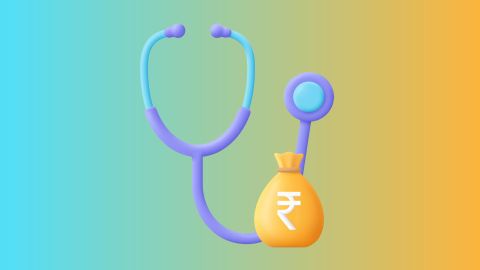History and evolution of primary health care
- Early roots of PHC: The history of PHC can be traced to early public health movements focused on hygiene, vaccination, and community-based care.
- Pre-1970s initiatives: Countries began experimenting with rural health programs and community clinics, highlighting the need for accessible, people-centered services.
- 1978 Alma-Ata Declaration: A major milestone in the evolution of primary health care, the Alma-Ata Declaration by the WHO and UNICEF emphasized “Health for All,” universal access, equity, and community participation.
- Shift toward comprehensive care: The declaration redefined PHC as a holistic system combining prevention, treatment, health education, nutrition, and sanitation.
- Post-Alma-Ata developments: Nations expanded PHC through national health missions, decentralized health systems, and integration of public health workers.
- Modern PHC reforms: Today’s evolution includes digital health, telemedicine, universal health coverage (UHC), and multisector collaboration to strengthen PHC delivery.
Key Elements of Primary Health Care (PHC)
- Integrated health services: Providing a full spectrum of healthcare, including primary care and essential public health functions, to address people’s needs at every stage of life.
- Addressing broader determinants of health: Targeting the social, economic, environmental, and commercial factors that shape health through coordinated multisectoral policies and actions.
- Empowering individuals, families, and communities: Promoting active involvement and shared responsibility in maintaining and improving health and well-being.
Importance of Primary Health Care (PHC)
PHC is vital for building stronger and more equitable healthcare systems because it:
- Better health outcomes: Early diagnosis and continuous care improve overall well-being, reduce hospital visits, and help manage chronic conditions like diabetes and heart disease.
- Cost-effective care: By addressing health issues early, PHC minimizes dependence on costly emergency or specialist treatments, making healthcare more affordable.
- Greater accessibility: It delivers essential services closer to communities, especially in rural and underserved regions, ensuring fair access for all.
- Focus on prevention: PHC emphasizes vaccinations, screenings, and health education to prevent diseases and reduce future health risks.
- Equity and community involvement: It addresses social factors affecting health and empowers communities to participate in improving their well-being.
- Stronger health systems: A well-developed PHC framework enhances preparedness and response during public health emergencies and epidemics.
- Consistent care: PHC builds long-term patient–provider relationships, ensuring coordinated, continuous, and more effective healthcare over time.
Components of Primary Health Care
Primary health care is built upon several essential components that work together to provide holistic care. The key components of PHC include:
- Health education: Creating awareness about health issues and guiding communities on prevention and control measures.
- Proper nutrition: Encouraging balanced diets, nutritional supplementation, and access to adequate food resources.
- Safe water and sanitation: Providing clean drinking water and ensuring basic sanitation facilities.
- Maternal and child healthcare: Offering prenatal care, family planning services, and child health support.
- Immunisation: Administering vaccines to protect against major infectious diseases.
- Prevention and control of endemic diseases: Addressing region-specific diseases through targeted management.
- Treatment of common diseases and injuries: Delivering care for frequent illnesses and minor injuries.
- Provision of essential drugs: Making life-saving medicines available and accessible.
These components collectively emphasise community involvement, equity, and a holistic approach to health and well-being.
Types of Primary Health Care Providers
Primary health care services are delivered by a variety of healthcare providers who play a vital role in ensuring the well-being of communities. The different types of primary care providers include:
- Family medicine physicians: Deliver comprehensive healthcare for individuals and families across all age groups.
- Internal medicine physicians (internists): Focus on adult health, managing both acute and chronic medical conditions.
- Paediatricians: Provide specialised care for infants, children, and adolescents.
- Nurse practitioners (NPs): Registered nurses with advanced training who can diagnose, treat, and prescribe medication.
- Physician assistants (PAs): Licensed practitioners offering medical services under the supervision of a physician.
- General practitioners (GPs): Treat a broad spectrum of medical conditions for patients of all ages.
- Community health workers: Promote health education and provide support, often within targeted communities.
- Obstetrician-gynaecologists (OB/GYNs): Focus on women’s reproductive health alongside some primary care services.
- Geriatricians: Provide specialised healthcare for elderly populations.
- Pharmacists: Dispense medications and offer advice on safe usage and minor health concerns.
- Dental care providers: Address oral health issues that contribute to overall well-being.
- Allied health professionals: Include physical, occupational, and speech therapists who support recovery and functional health.
Uses of PHC(Primary Health Care)
- Health promotion and disease prevention: PHC raises public awareness, encourages healthy habits, and prevents illnesses through vaccination and similar programs.
- Treatment services: Offers first-level diagnosis, treatment, and management of common health conditions.
- Rehabilitation and palliative care: Provides support for recovery and comfort care for patients with serious or long-term illnesses.
- Maternal and child health: Ensures essential care for mothers, infants, and children.
- Community health focus: Addresses wider social and environmental health factors through community participation.
- Emergency preparedness: Strengthens the healthcare system’s ability to respond effectively during crises.
- Continuing care: Helps manage chronic diseases through consistent, long-term follow-up.
Benefits of Primary Health Care (PHC)
- Improved health outcomes: Early diagnosis and timely treatment in PHC lead to better overall health and quality of life.
- Cost-effectiveness: Reduces reliance on costly specialist care, making healthcare more affordable for communities.
- Enhanced accessibility: Brings essential services closer to people, particularly in remote and underserved areas.
- Preventive care: Encourages vaccinations, screenings, and routine checkups to avoid future health problems.
- Chronic condition management: Provides ongoing care for illnesses such as diabetes and hypertension to improve daily living.
- Community involvement: Engages local populations to design services that meet their unique needs.
- Effective communication: Helps patients clearly understand their health conditions and treatment plans.
- Continuity of care: Maintains long-term patient-provider relationships, ensuring consistent and coordinated care.
Challenges of Primary Health Care (PHC)
- Resource limitations: Limited funding and shortages of trained healthcare professionals can reduce the effectiveness of PHC, especially in certain regions.
- Inequities in access: Socioeconomic differences can create barriers to care, resulting in unequal health outcomes.
- Administrative challenges: Complex policies and bureaucracy can delay or disrupt efficient PHC service delivery.
- Lack of awareness: Low public understanding of PHC’s role and benefits can hinder its utilisation.
- Need for professional development: Ongoing training is essential for primary care providers to remain current with best practices.
- Infrastructure gaps: In some areas, particularly in low- and middle-income countries, facilities and resources to deliver comprehensive PHC may be inadequate.
Differences between primary, secondary, and tertiary care
- Primary care:
- First point of contact for individuals seeking healthcare.
- Focuses on prevention, basic treatment, health education, and management of common illnesses.
- Highlights the primary secondary tertiary care difference by emphasizing community-based, accessible servic
- es.Represents PHC vs specialist care, as it involves general practitioners, nurses, and community health workers rather than specialists.
- Secondary care:
- Involves specialist-led diagnosis and treatment for conditions that cannot be managed at the primary level.
- Provided by specialists such as cardiologists, dermatologists, or orthopedists in district hospitals or specialty clinics.
- Typically requires a referral from primary care providers.
- Tertiary care:
- Offers advanced, highly specialized medical services.
- Delivered in major hospitals or research centers with specialized equipment, such as oncology units, neurosurgery, and organ transplant centers.
- Handles complex cases requiring expert-level care beyond secondary services.
Difference between PHC and CHC
Primary health care (PHC) and community health care (CHC) are two distinct models of delivering health services to people and communities.
PHC is a broad, comprehensive approach that focuses on preventive, basic, and curative care for all individuals, especially underserved groups. It is built on the principle that everyone has the right to accessible, affordable, and equitable health services, regardless of their location or socio-economic status.
Community health care, in contrast, is a more localized model that delivers services at the community level. It emphasizes meeting the health needs of specific populations and often partners with local institutions such as schools or community centers to offer care and health education.
In essence, PHC aims to provide universal, holistic care, while CHC focuses on tailored services for particular communities to address their unique health needs.
Conclusion
Primary health care is the cornerstone of a robust healthcare system. It is essential for ensuring that everyone has access to necessary health services, which helps in achieving overall health equity and improving quality of life. In today’s evolving medical landscape, understanding aspects of healthcare finance also plays a key role in sustaining and expanding such services. If you are a doctor considering expanding your practice or establishing a new clinic, a doctor loan or professional loan from Bajaj Finance can provide the financial support needed to realise your dreams. Before applying, it's important to understand the qualification requirements set by lenders. Familiarising yourself with the doctor loan eligibility criteria can help you prepare the right documents and improve your chances of approval. When planning your budget, knowing the cost of borrowing is equally vital. Reviewing the current doctor loan interest rate can help you compare options and choose the most affordable financing solution.





